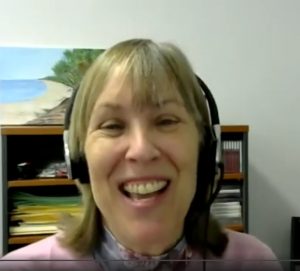
Interview link available to members here
How do you start your career as a bilingual engineer and end up as director of one of Australia’s most prominent and well-known literacy RTOs and audit bodies?
In this interview Mary Wallace shares her surprising pathway into adult literacy that started with a career as a bilingual engineer, spanned several countries, involved teaching in settings as diverse as neighborhood houses to some of the world’s largest car manufacturers, and culminated in the role of Director of LWA.
Responding to the proposition raised by Philippa McLean in a previous interview that teachers have lost confidence because of the validation process, Mary discusses sensitivities and dealing with robust conversations. I’ve also had time now to reflect on the benefits of opening these discursive spaces (a term I’ve happily adopted since interviewing Pam Osmond earlier this year) and recommend anyone involved in a program that undergoes validation to listen in and take heart that the verifiers are focused on continuous improvement and that there are positives for all participants!
“Learners are not just job seekers – we need to respond to the learners as whole individuals”. Mary raises her concerns that some literacy practices are undermined by program delivery which is too narrow and specific and doesn’t address holistic delivery. “The challenge is how to respond to the individuals when working with a group in the classroom”. With a view that teachers need qualifications in adult LN, Mary suggests that rather than let industry reports dictate the way we view the needs of literacy learners we focus on transferable skills and remember that literacy for work is important, but so is literacy for community and personal use!
When asked about the future, Mary asks that we think about doing something different. This could involve exploring ideas such as moving outside competency based training, experimenting with new structures, responding to the needs of learners, flexibility, moving beyond the current frameworks, and considering the crucial role of soft skills.
